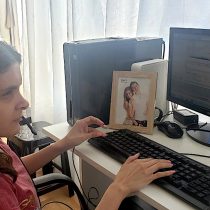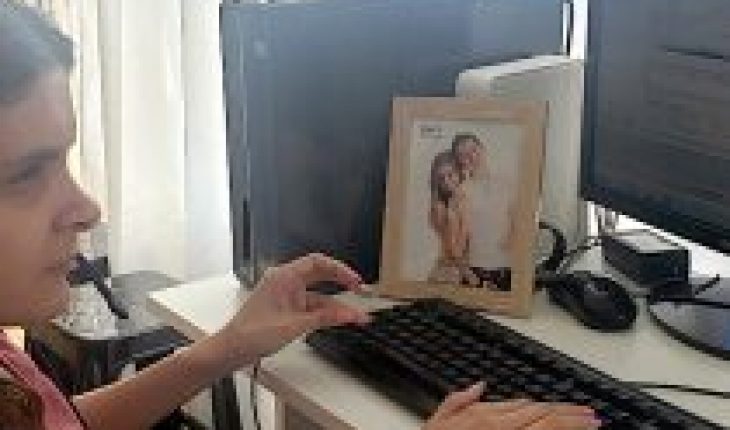
A little over two years have elapsed since the Labor Inclusion Act came into force, which states that both public and private entities with more than 100 workers must hire at least 1% of persons with disabilities (PcDs).
In this way and according to data from the Directorate of Labour, as of July 31 of this year, 3871 companies have hired 19,506 people with disabilities, of which 64.3% are men, while the rest women.
Fundación Luz, an entity that rehabilitates and trains people who are blind or low vision, has encouraged the participation of blind people in the labour market thanks to its Labor Inclusion Program, which since 2006 has carried out more than 1,500 labor managements in public bodies and companies.
“Visually impaired people have historically been typecast in certain areas and offices where society assumes that they can perform better. Currently this also happens, assigning them to areas of customer telephone service or telephone collection, in which many of our users succeed and find a development opportunity,” said Fernanda Muñoz, administrator of Fundación Luz’s Labor Inclusion Program.
“While as a society we must understand and naturalize that there is not a single area where DVCs can be performed, job choices for a person should not be conditioned by their disability,” he added.
How can companies be further incentivized to hire PcD then? For Muñoz, “the most effective strategy for incentiving the recruitment of people with disabilities focuses on removing the atnential barriers generated by the lack of information and prejudices between employers.”
In this line, he added that “these prejudices act as a wall between companies and people with disabilities, which prevents them from being valued, evaluated and contracted for their real possibilities of contributing in an organization. In this sense, our job as a Labour Inclusion Program is to eliminate this wall, it is to foster a scenario where employers do not see disability, but the skills, training, skills and knowledge of people, and from this they are hired.”
“I felt very welcome and included by everyone”
In 2013 Ingrid Díaz joined Fundación Luz in the Training and Labor Inclusion Program. After four months of study he finished his computer course. Seven years of that experience have passed and today he remembers it in the best way. “It served me a lot, because I learned how to use the screen reader and the commands that companies give you, that allowed me to specialize in collections, customer service and the concepts that one must know to handle in call center.”
He added that “at Fundación Luz I was able to fulfill my goal of training what led me to find work, as well as to form friendships with colleagues and with people who work there.” Today, at the age of 29, he serves in the collection area of Plus Consulting. “Since the day I went to work, I’ve been treated in a good way,” he said.
For her part, Hilda Baron, 25, entered the Rehabilitation Program last year, where she spent four months, and then started the computer course. “I came from Arica to Fundación Luz and the truth that it was a great experience since it helped me a lot in the rehabilitation, especially with the mobility that allows me to be autonomous. In addition, he gave me many tools that eventually led me to get a job at Plus Consulting.”
On what his adaptation has been like in the collection area, he argued that “although I was able to be in person for two weeks in the company, those days I felt very welcome and included by all. Now, with telework, I have followed my work and the good thing is that when I have any problems or doubts I contact the computer professors of the foundation and immediately give me the solution. They’ve been very good, they’ve always been watching.”





